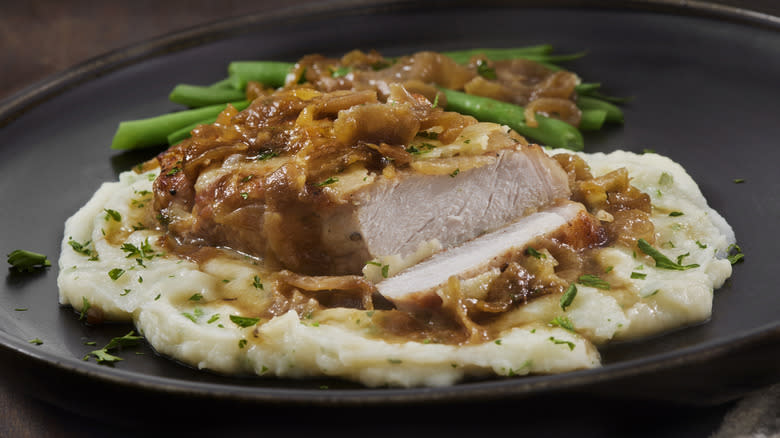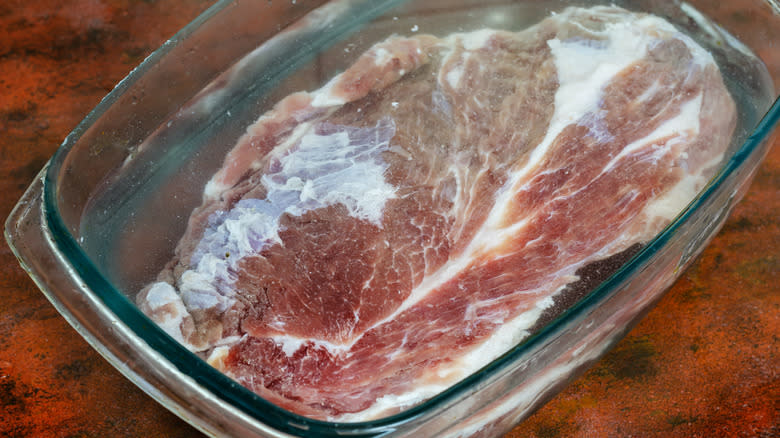A Simple Water Soak Is All You Need To Revive Overly Salty Pork

Salt is to food as the soul is to the body. For dishes where savoriness is key -- like pork-based dishes -- you will have a tough time finding a recipe that doesn't involve adding a pinch of salt somewhere. However, its flavor-boosting power comes with a catch — it's easy to go overboard with a dry rub and accidentally make your pork a bit too salty. Don't feel too down, though. It happens to the best of us. Fortunately, one solution for saving your pork dinner is surprisingly simple: Soak it in a water bath!
To rescue overly salty pork, fill a large pot with clean, cold water and submerge it, letting it rest inside the water for a couple of hours. During this time, the extra salt in the meat will naturally move into the water through the osmosis process. The soaking time depends on how thick and what cut of meat you have. As a rule, it should soak for at least two hours.
After the wait, you can cut out a small piece and cook it to see if there's still too much salt in the meat. If it's still too salty, start with clean, fresh water again and allow it to soak for a little more time. Keep repeating this process until the pork tastes right, then take it out of the water, pat it dry with paper towels, and cook it as you typically would for your intended dish.
Read more: 12 Different Ways To Cook Chicken
Other Ways To Make Overly Salty Pork More Palatable

You don't have to rely solely on soaking to rescue your salty pork dish. If you're short on time, you can lean on other quick tricks to tone down the saltiness. If you're preparing a liquid-based pork recipe, like pork indad or moo palo, two stew-like dishes, you can add unsalted vegetables, sodium-free broth, or plain water. These will help reduce the overall saltiness by diluting the salt concentration. That said, be careful not to overdo it, as this can make your dish taste bland or watery.
Another approach is switching up the recipe by introducing a starch-based component, like mashed potatoes, rice, or pasta; these starchy sides can absorb the excess salt. This method works particularly well in dishes like slow cooker pork loin roast, where a hearty serving of mashed potatoes will fit seamlessly onto the plate.
Lastly, you can balance out the saltiness by using acid or dairy. A splash of vinegar or lemon juice can bring a new flavor dimension to mask some saltiness, as in apple cider vinegar smoked pulled pork. Alternatively, creamy ingredients like milk and unsalted butter can help mellow out that salty bite. Here's another idea: Try and fashion your oversalted meat into a creamy smothered pork chop, which relies on a sauce made with flour, cream, and chicken stock.
Read the original article on Tasting Table.

